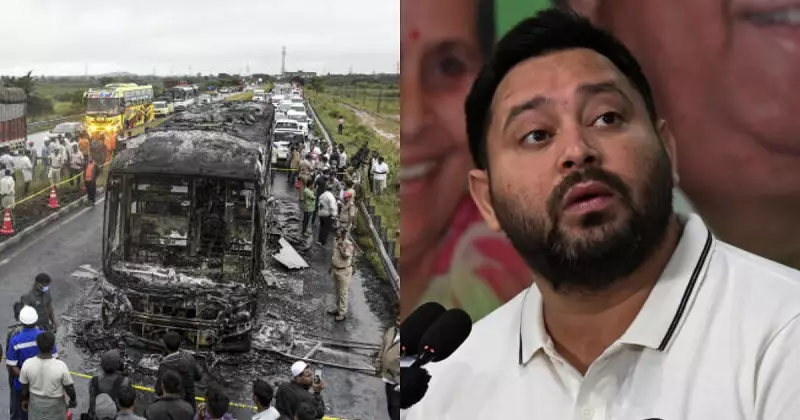
In a shocking development from Kurnool, Andhra Pradesh, forensic investigations have uncovered crucial evidence about the horrific bus fire incident that captured national attention. The official report confirms what many had suspected - the biker involved in the tragic accident was under the influence of alcohol at the time of the incident.
Forensic Findings Reveal Disturbing Details
The comprehensive forensic analysis leaves no room for doubt about the biker's condition during the fateful collision. Laboratory tests conducted on biological samples have provided scientific confirmation of alcohol consumption, adding a grim layer to an already devastating tragedy that claimed multiple lives and left families shattered.
Political Storm Over Waqf Act Remarks
Meanwhile, in a separate development that's creating waves across political circles, Tejashwi Yadav has made controversial statements regarding the future of the Waqf Act. The prominent political figure declared that if the current political alliance secures victory, they would "throw the Waqf Act into the dustbin of history."
These remarks have ignited intense debate among legal experts, religious communities, and political analysts. The Waqf Act, which governs Muslim religious properties in India, has long been a subject of political discussion and legal scrutiny.
National Implications
The convergence of these two significant developments - the Kurnool tragedy findings and the explosive political commentary - highlights the complex tapestry of issues facing contemporary India. While one represents the sobering reality of road safety and substance abuse, the other touches upon sensitive religious and political matters that could shape future policy directions.
Authorities continue their investigation into the Kurnool incident, promising thorough action based on the forensic evidence. Meanwhile, political observers are closely monitoring the fallout from Yadav's statements, which could influence voter sentiment in upcoming elections.






